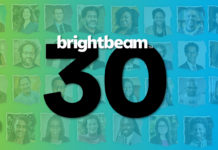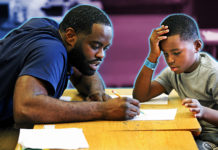During my morning workout, I caught a YouTube video where George Lee, popularly known as The Conscious Lee, and Wayne Brady were having an incredible conversation about healing, mental health and internal trauma in the Black community. As the discussion went on, I couldn’t help but think about the ways in which my Blackness has been questioned, as well the ways in which I’ve been complicit in questioning the Blackness of others.
I subscribed to a definition of Blackness that was informed by my own upbringing and, as a result, I was guilty of judging other people’s Blackness based on that definition.
As a Black man who attended a suburban white high school in Connecticut and lived in the surrounding neighborhood, I didn’t have the critical lens I have now to psychoanalyze the racist shit that I experienced from some of my white classmates or the internalized racism that had nearly consumed my soul. At 15 years old, I subscribed to a definition of Blackness that was informed by my own upbringing and, as a result, I was guilty of judging other people’s Blackness based on that definition.
To give further context, I’m an 80s baby who grew up during the Golden Age of Hip-Hop, listened to rap music, and watched all the classic Black sitcoms of the late 80s and early 90s. I also came from a West African family where both of my parents, who grew up in Ghana, were college-educated and always preached the value of education. Because of that, I was a conscientious student who maintained high grades, listened to and respected all of my teachers, and never got in any major trouble during my K-12 years.
Being in a Ghanaian household, I grew up eating jollof rice, fried plantain, fufu and all the other delicacies. It wasn’t until my college years that I started to eat soul food or even a bowl of grits. It was also during college that I was exposed to Spades, which I still can’t play to save my life, and quite frankly, gives me great anxiety to this day. Why is that? It’s only a game, right? It’s actually more than a game. For many Black folx, it’s part of their personalized criteria for what it means to be Black.
I know how it feels to have my Blackness on trial.
All that to say, I know how it feels to have my Blackness on trial. So who was I, at 15 years old, to have the audacity to measure another person’s Blackness when others had done it to me? Why do we, as Black folx, feel entitled to be the gatekeepers of Blackness when that definition is far from normed? In the past, I’ve had other Black folx tell me I wasn’t Black enough because I was too African, too articulate, not “ghetto” enough because I grew up in Connecticut, and never lived in the hood. As I approach the fourth decade of my life, I’m very much more comfortable in my skin and secure in who I am, but that doesn’t mean the trauma from those statements doesn’t linger within me.
Blackness can never be standardized because it’s multifaceted—and that alone is a major reason why we need more Black teachers in our schools, especially Black men. It’s not only beneficial to our Black students, but to our White students as well. If we want our Black students to be proud of their own Blackness, then we must expose them to teachers who represent the different shades and manifestations of Blackness. The presence of Black teachers will empower our Black students to confidently and unapologetically walk in their Blackness without the need to compromise who they are.
Audre Lorde once said, “It is not our differences that divide us. It is our inability to recognize, accept, and celebrate those differences.” Sadly, this is especially true within the Black community where we constantly put each other’s Blackness on trial. In the Black community, it’s imperative that we come to a uniform understanding that Blackness cannot be confined to a specific class, level of education, skin complexion, gender identity or sexual orientation. It is our intersectional identities that make our Blackness beautiful and that is the greatest lesson that we can teach our Black students. Adopting this mindset is also key to our liberation and to combating anti-Black sentiment in our schools.
The presence of these phenomenal Black educators and so many others represents hope, possibility, validation and affirmation for our Black students.
We have Black queer students who need a Bettina Love, Akiea “Ki” Gross, Gary Hamilton, Mario Jovan Shaw or Patrick Harris in their lives. There are Black boys who need a Clamentia Hall, Jr., Brian Keith Harris, Franklin Willis, Alfred “Shivy” Brooks, Ernest Crim III or Rakim Jenkins in their lives. There are Black girls who need a Krystal Smith, Torie Anderson-Lloyd, Dawnavyn James, Johora Warren, Deidra Fogarty or Tiffany Whyte in their lives. The presence of these phenomenal Black educators—and so many others—represents hope, possibility, validation and affirmation for our Black students. For so many of these students, they don’t start honoring and believing in themselves until they see mirrors of who they can grow up to be standing in front of the classroom.
The more mirrors that we can provide for our Black students, the more they will realize that their unique form of Blackness is good enough and has always been.
I know for sure that if I had more exposure to Black teachers during my K-12 years, I wouldn’t have had to fight so hard and so tirelessly to reach a degree of Blackness that I perceived to be satisfactory in the court of Blackness. The need to disrupt this erroneous thinking is what ultimately inspired me to become an educator, and now we have a golden opportunity to push the Biden administration to prioritize teacher diversity so that we can bring more Black folx like me into the teaching profession. The more mirrors that we can provide for our Black students, the more they will realize that their unique form of Blackness is good enough and has always been.










